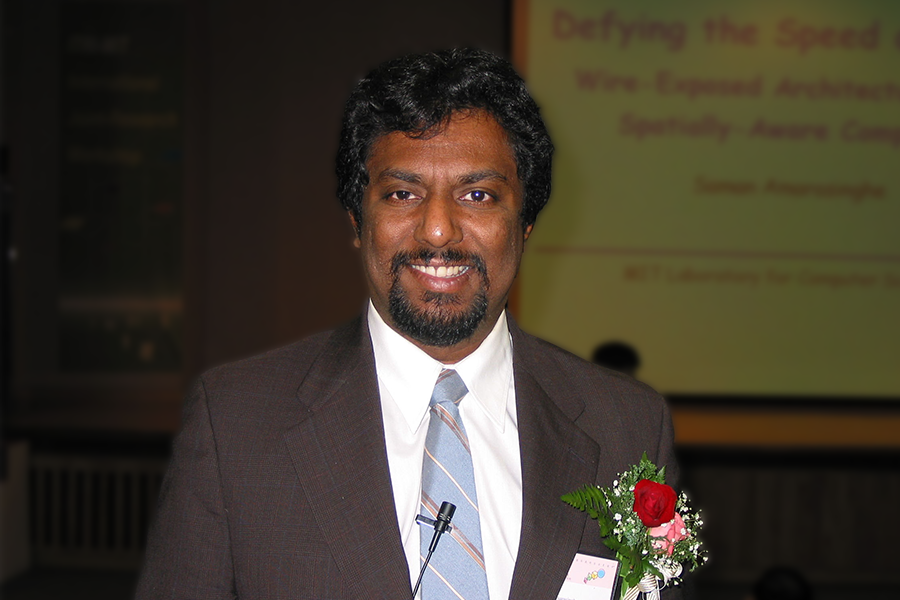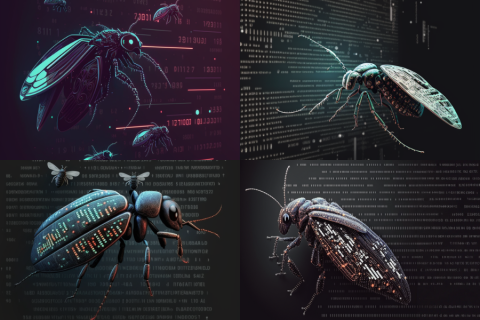Saman Amarasinghe, Thomas and Gerd Perkins Professor of EECS at MIT and CSAIL principal investigator, has received the Ken Kennedy Award from the Association for Computing Machinery (ACM) and IEEE Computer Society for “pioneering high-performance domain-specific languages, exceptional mentorship, and service advancing the global computing community,” according to an ACM press release.
Amarasinghe currently leads the Commit Compiler Research Group, where he develops programming languages and compilers — or systems that translate code into instructions that computers execute — that ensure applications run as efficiently as possible on modern computing systems. He has built language designs and sophisticated compiler algorithms to truly harness the potential of hardware resources.
For example, he developed a compiler optimization tool called “The Superword-Level Parallelism” (SLP) with his then PhD student Sam Larsen. It automatically produces code that’s optimized for short vector units, which are components that enable a system to do similar calculations on different datapoints, and is now used across all modern production compilers. Amarasinghe's then-PhD student (and now Associate Professor) Jonathan Ragan-Kelly and Amar Bose Professor of Computing Frédo Durand, all CSAIL principal investigators, created the “Halide” Domain Specific Language used to process and transform photos on apps like YouTube, Adobe Photoshop, and the Android camera pipeline. It separates code into computing and scheduling languages, creating simple and portable algorithms while working on several schedules to guarantee each architecture performs as efficiently as possible.
Amarasinghe also worked with PhD student Frederick Kjolstad, who’s now an assistant professor at Stanford University, on an approach called the “Tensor Algebra Compiler” (TACO) that generates optimized code for computers from multidimensional data structures called tensors. It was the first to do so across different tensor formats. He also worked on “StreamIt,” one of the first domain-specific languages to support multicore processors directly.
His mentorship extends beyond impactful computing projects, though. Amarasinghe has been the faculty director of MIT’s Global Startup Labs (GSL) for the past 15 years, helping young people start information technology-based businesses around the world, including in Africa, South America, and South Asia.
“The contributions of Amarasinghe to the field of HPC are many and varied,” says Mary Hall, chair of the 2025 ACM/IEEE CS Ken Kennedy Subcommittee. “His work, which impacts billions of people daily, has informed high-performance computing and enables the world at large to leverage its power in unique ways. We are honored to recognize Dr. Amarasinghe for HPC work that has delivered systems that better serve the industry and our world.”
Amarasinghe’s impactful leadership and research earned him this year’s Ken Kennedy Award, an annual honor that recognizes “substantial contributions to programmability and productivity in computing and significant community service or mentoring contributions.” He was previously named an ACM fellow in 2019 and has been an MIT faculty member since 1997.



